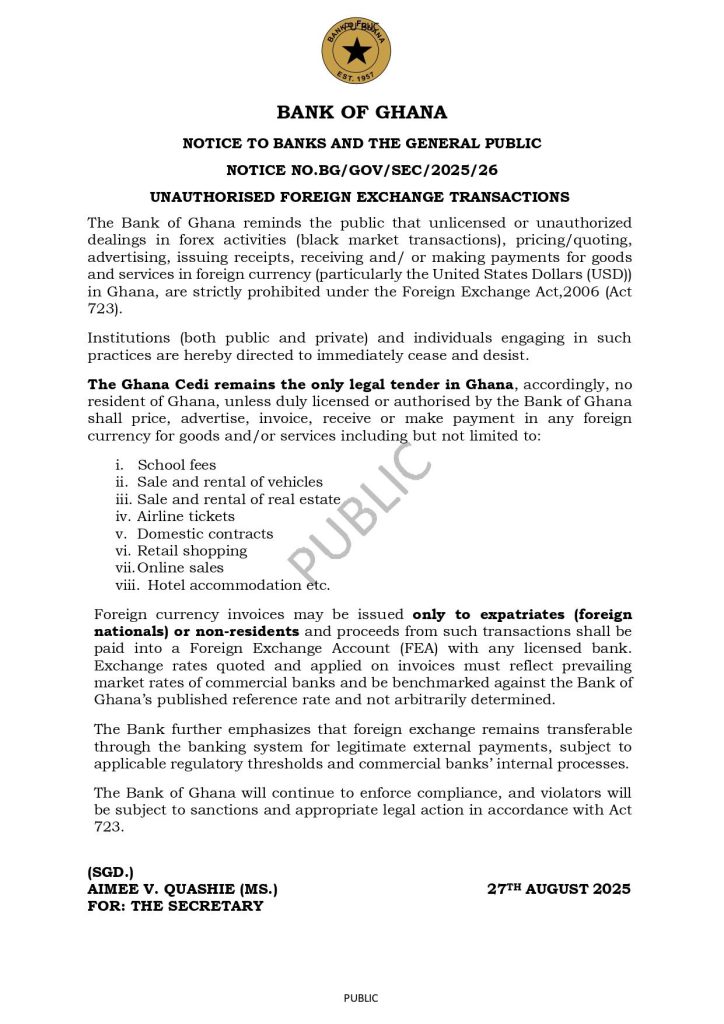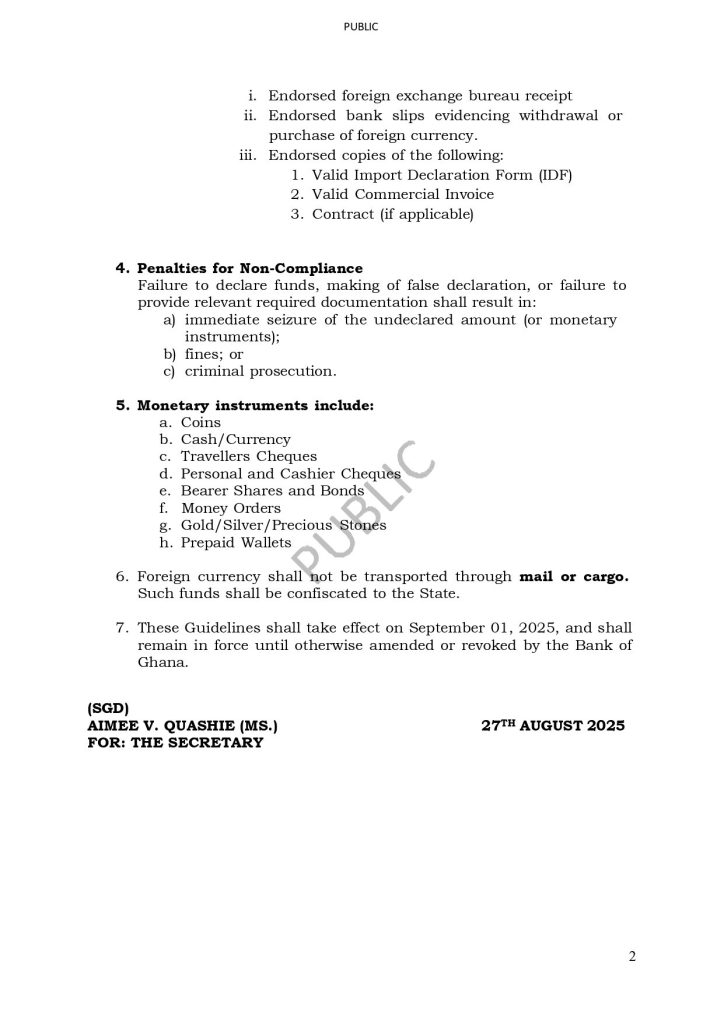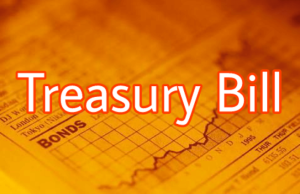Foreign currency sent via mail or cargo will be seized by the state – BoG

The Bank of Ghana has issued a public notice reminding banks and the general public that unauthorized foreign exchange transactions, including black market dealings and pricing goods and services in foreign currencies, are strictly prohibited under the Foreign Exchange Act, 2006 (Act 723).
Key Directives:
– Cease and Desist: Institutions and individuals engaging in unauthorized forex activities are directed to immediately cease and desist.
– Legal Tender: The Ghana Cedi remains the only legal tender in Ghana, and payments for goods and services must be made in cedis.
– Exceptions: Foreign currency invoices may be issued to expatriates or non-residents, and proceeds from such transactions must be paid into a Foreign Exchange Account (FEA) with a licensed bank.
– Exchange Rates: Exchange rates quoted and applied on invoices must reflect prevailing market rates of commercial banks and be benchmarked against the Bank of Ghana’s published reference rate.
Penalties for Non-Compliance:
– Seizure of Undeclared Funds: Failure to declare funds or making false declarations may result in the seizure of the undeclared amount.
– Fines and Prosecution: Violators may face fines or criminal prosecution.
Documentation Requirements:
– Endorsed Receipts and Bank Slips: Transactions must be supported by endorsed foreign exchange bureau receipts, bank slips, and relevant documentation, such as valid Import Declaration Forms and commercial invoices.
Effective Date:
The guidelines take effect on September 1, 2025, and will remain in force until otherwise amended or revoked by the Bank of Ghana.
Read the statement below


By DeStoryNews








